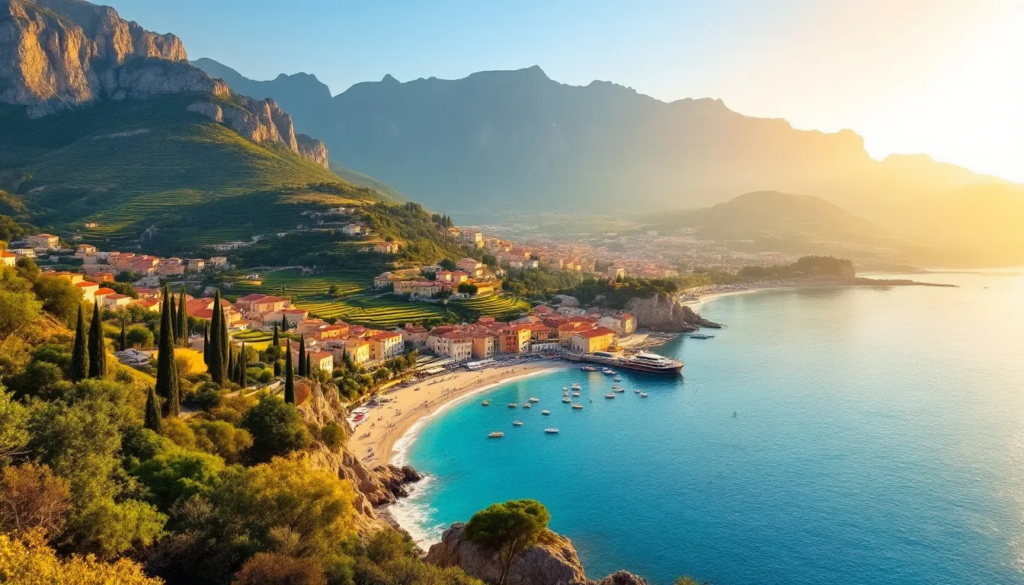Curious about what to do in Tivoli, Italy? Start by exploring its historic villas like Villa d’Este and Villa Adriana, delving into Roman heritage sites, wandering medieval streets, savoring local cuisine, and unwinding at Tivoli Terme. This guide covers all the top attractions and activities.
Key Takeaways
- Tivoli is home to stunning historic villas, including UNESCO World Heritage Sites like Villa d’Este and Villa Adriana, showcasing remarkable architecture and lush gardens.
- The town offers a rich blend of Roman and medieval heritage, with sites like the Sanctuary of Hercules Victor and Rocca Pia providing insights into its historical significance.
- Visitors can enjoy authentic Italian cuisine at local restaurants, explore charming streets in the historic center, and unwind at Tivoli Terme with therapeutic thermal waters.
Discover the Historic Villas
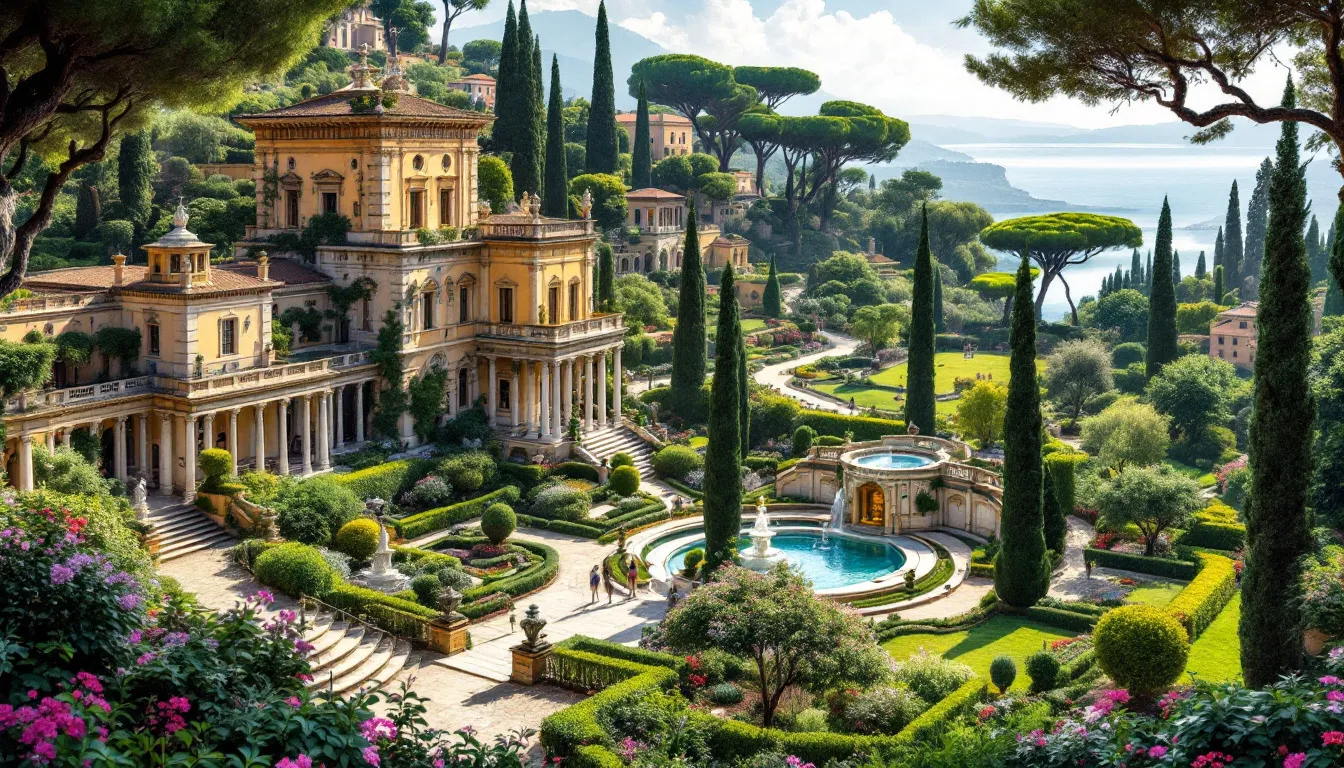
One of Tivoli’s most enchanting features is its collection of historic villas, each with a unique story and architectural splendor. These villas are not just mere residences; they are masterpieces that have stood the test of time and continue to captivate visitors with their opulence and beauty. Tivoli is home to two UNESCO World Heritage Sites, Villa d’Este and Villa Adriana, which are prime examples of the town’s rich historical tapestry.
The villas in Tivoli were built by wealthy Romans who sought to escape the hustle and bustle of Rome. Among them were Emperor Hadrian and Maecenas, whose magnificent villas still stand as testaments to their grandeur and love for luxury. As you stroll through Tivoli gardens and explore these villas, you’ll be transported back in time to an era of elegance and extravagance.
Visiting Villa Adriana, Villa d’Este, and Villa Gregoriana offers a full appreciation of these historic villas’ splendor. Each villa offers a unique glimpse into the past, with stunning architecture, lush gardens, and fascinating stories that will leave you in awe.
Villa Adriana
Villa Adriana, also known as hadrian’s villa, is a sprawling archaeological marvel that covers approximately 120 hectares. Built by Roman Emperor Hadrian in the 2nd century AD, this villa is a testament to Roman engineering and architectural prowess. Wandering through the extensive ruins reveals pools, gardens, and elaborate structures that showcase Roman architectural grandeur.
Exploring Villa Adriana is like stepping into a different world. The complex’s sheer scale is awe-inspiring, with intricate details offering a glimpse into Emperor Hadrian’s luxurious lifestyle. Admiring the vaulted baths or strolling through the lush gardens at Villa Adriana promises an unforgettable historical journey.
Villa d’Este
Villa d’Este is a Renaissance gem that stands out for its elaborate frescoes and ornate fountains. Constructed in the 16th century, this villa is renowned for its stunning panoramic views and exceptional gardens. The gardens of Villa d’Este are celebrated for their Renaissance landscaping and innovative water features, designed by the talented Pirro Ligorio.
The mastermind behind the villa, Cardinal Ippolito II d’Este, commissioned the gardens to be revitalized in the mid-16th century. Meandering through the villa and its gardens reveals an intricate network of fountains, pools, and statues that have inspired botanical gardens worldwide. Villa d’Este is a true testament to the artistic and architectural brilliance of the Renaissance era.
Villa Gregoriana
Villa Gregoriana is a haven of natural beauty, offering a serene escape from the hustle and bustle of everyday life. Commissioned by Pope Gregory XVI in the 19th century, this villa was designed as a place of relaxation and contemplation. The lush landscapes, impressive waterfalls, and ancient structures create a picturesque scenery that is both tranquil and awe-inspiring.
Exploring Villa Gregoriana enchants with its harmonious blend of nature and history. The villa’s grottoes, waterfalls, and verdant pathways invite you to take a leisurely stroll and immerse yourself in its serene environment. Villa Gregoriana serves as a perfect retreat, whether for a moment of peace or a scenic adventure.
Explore Roman Heritage
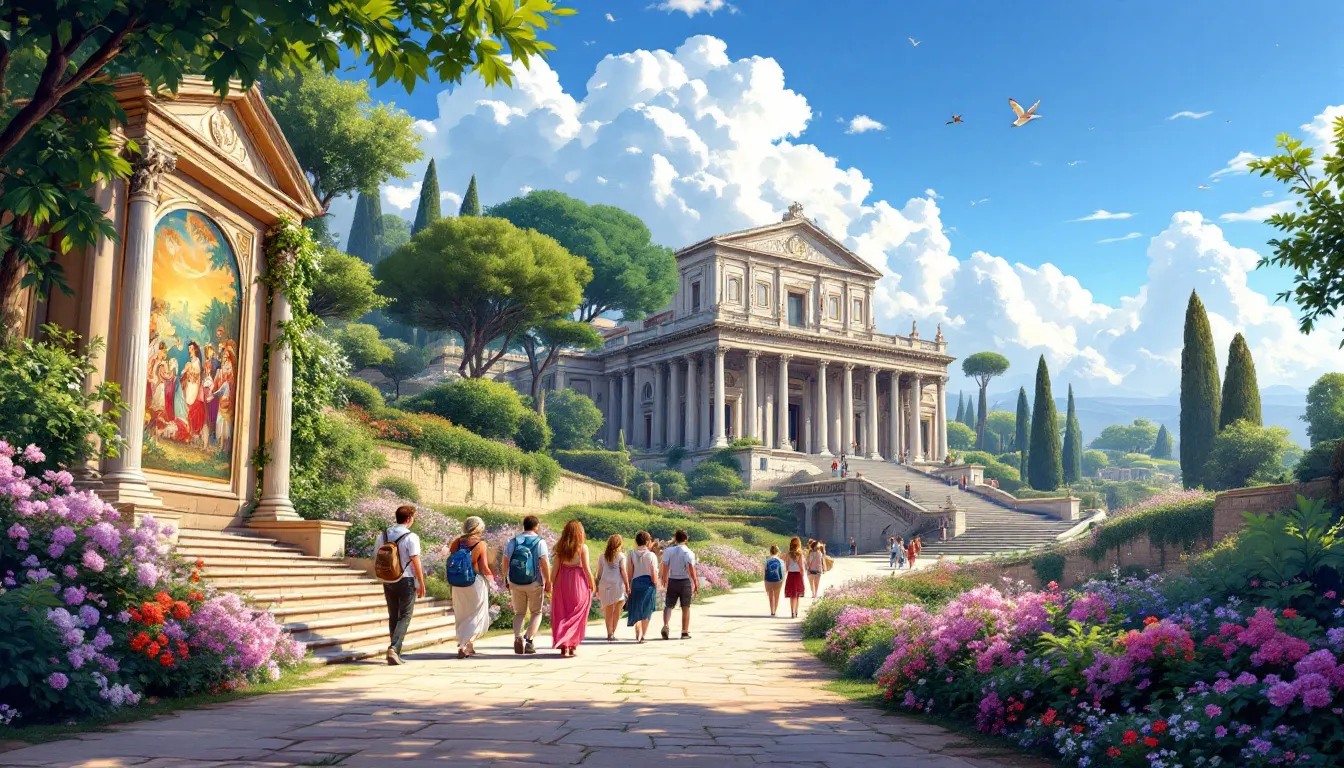
Tivoli is steeped in Roman history, with heritage sites that showcase the grandeur of ancient Roman architecture and landscape design. Among these, Hadrian’s Villa stands out as a remarkable example of Roman engineering, featuring extensive gardens and vaulted baths that reflect the luxurious lifestyle of Roman Emperor Hadrian.
Another notable site is Villa Gregoriana, which houses the ancient 1st century Roman Temple of Vesta. This temple, set amidst lush landscapes, exemplifies the blend of natural beauty and historical significance that characterizes Tivoli’s Roman heritage. These sites provide a fascinating glimpse into the past and the enduring legacy of Roman civilization.
Sanctuary of Hercules Victor
The Sanctuary of Hercules Victor is a significant historical site that showcases ancient Roman architecture. The ancient temple, dedicated to Hercules, reflects the grandeur and stylistic elements of Roman construction. Exploring the sanctuary captivates with its intricate details and historical context.
This sanctuary is not just a testament to Roman religious practices but also a remarkable example of architectural innovation. The temple’s design and construction techniques offer valuable insights into the engineering capabilities of ancient Rome, making it a must-visit for history enthusiasts.
Rocca Pia
Rocca Pia is a medieval fortress that stands as a testament to Tivoli’s rich history and strategic significance. Built by Pope Pius II in the 1460s, this fortress was designed to enhance the defensive capabilities of Tivoli. Originally serving as a military stronghold and prison, Rocca Pia played a crucial role in maintaining control over the town.
The fortress’s robust walls and strategic design reflect the architectural prowess of its architects, Varrone and Niccolò, who were students of the renowned Renaissance architect Filarete. Over the years, Rocca Pia has undergone various restorations, preserving its historical significance and offering visitors a glimpse into Tivoli’s medieval past.
Stroll Through Tivoli’s Historic Center
Tivoli’s historic center is a labyrinth of narrow medieval streets and alleys that invite exploration. The charming local shops, restaurants, and vibrant atmosphere make it a delightful place to wander and soak in the town’s rich history. As you meander through the cobblestone streets, you’ll be transported back in time, surrounded by the architectural beauty of centuries past.
Comfortable walking shoes are essential for navigating the uneven surfaces and cobblestone streets of Tivoli. Browsing through local shops or enjoying a meal at a quaint restaurant, the historic center captivates with its blend of old-world charm and modern vibrancy.
Churches of Tivoli
Tivoli is home to several notable churches that showcase both architectural beauty and historical significance. The Basilica of San Lorenzo, with its striking architectural style, serves as a significant cultural and religious landmark in the town. Santa Maria Maggiore, adorned with numerous frescoes, is renowned for its artistic and historical value.
Chiesa di Santa Maria Maggiore, featuring intricate mosaic floors and located near Villa d’Este, is another must-visit. Chiesa di San Silvestro, dating back to the 11th century, is notable for its beautiful paintings and historical significance.
These churches offer a glimpse into Tivoli’s rich religious heritage and architectural splendor.
Medieval Architecture
Tivoli’s medieval architecture is a testament to its rich historical past. The Gothic House, located on Via Campitelli, is a prime example of medieval architecture, featuring distinctive Gothic elements that reflect the city’s historical heritage. The unique architectural details and brickwork of the Gothic House make it a notable landmark that connects the town to its medieval roots.
Many of Tivoli’s medieval buildings incorporate local stone, giving them a rustic appearance that is unique to the region. Exploring these buildings offers a fascinating journey through history, showcasing the architectural styles and techniques of the medieval period. Tivoli’s medieval architecture is a testament to the town’s enduring historical and cultural significance.
Enjoy Local Cuisine
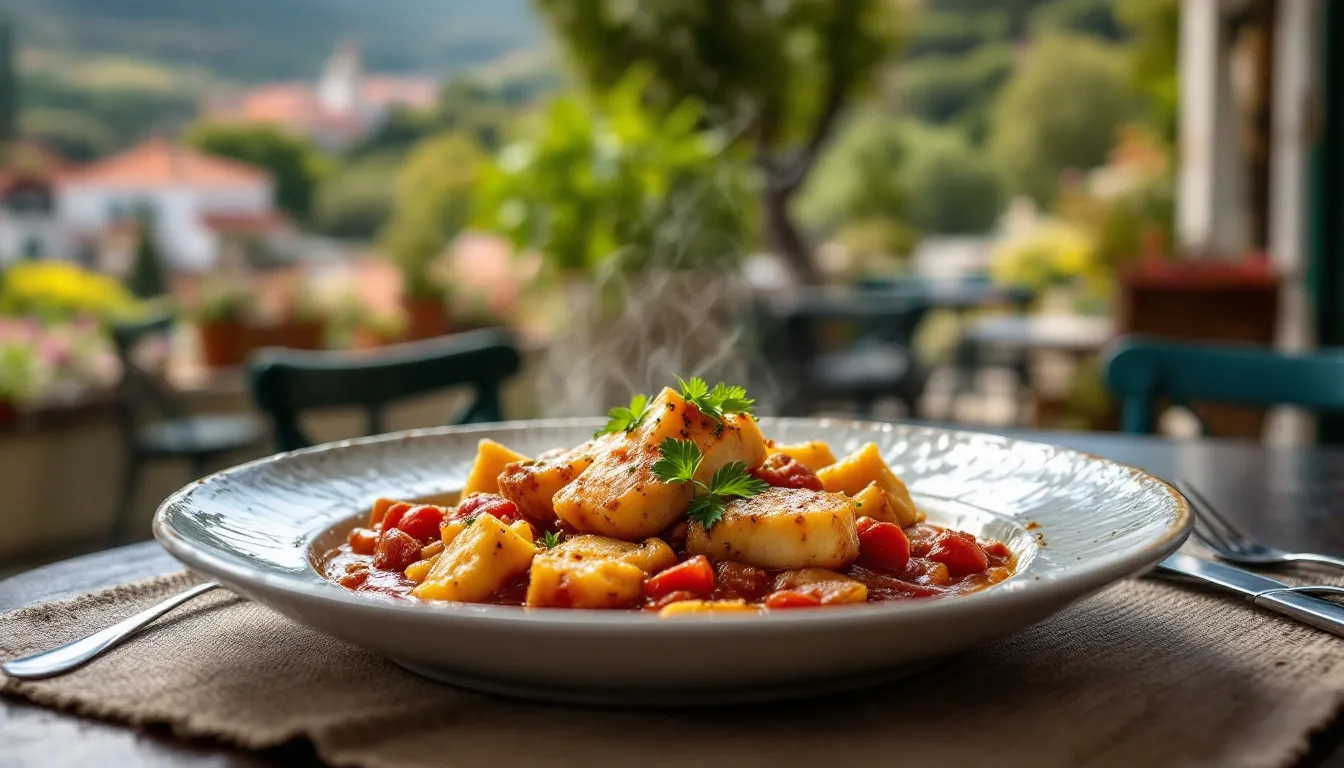
Tivoli offers a rich dining scene with various Italian cuisine options that cater to diverse tastes. From casual meals to fine dining experiences, the town’s restaurants serve authentic Italian flavors that will delight your palate. From traditional dishes to innovative culinary creations, Tivoli’s local cuisine is a gastronomic adventure waiting to be explored.
L’angolino di Mirko is a must-visit for food lovers, offering authentic Italian cuisine that highlights the rich flavors of the region. For a sweet treat, head to Ilovit, an artisanal cafe and bakery known for its coffee, cakes, and famous tiramisu. Tivoli’s culinary scene is as diverse as it is delicious, making it a paradise for food enthusiasts.
Ristorante Sibilla
Ristorante Sibilla is a 300-year-old restaurant located at the foot of Acropolis, near Villa Gregoriana and nearby aniene river. This historic eatery offers a unique dining experience with stunning views of the Aniene River and the Temple of Sibyl. The restaurant’s menu features seasonal Italian recipes with a contemporary twist, including dishes like risotto, cacio e pepe, and sea bass carpaccio.
Dining at Ristorante Sibilla is not just about the food; it’s about the entire experience. The scenic views, combined with the exquisite cuisine, create a memorable dining experience that captures the essence of Tivoli’s culinary heritage. Ristorante Sibilla offers a perfect blend of history, flavor, and ambiance for romantic dinners or family meals.
La Fornarina
La Fornarina is renowned for its gourmet pizzas and calzoni, making it a favorite among locals and tourists alike. The restaurant focuses on using local ingredients, ensuring that every dish is fresh, flavorful, and true to the region’s culinary traditions. Situated in a charming medieval palazzo, La Fornarina offers a cozy and inviting dining atmosphere that perfectly complements its delicious menu.
Craving a classic Margherita pizza or a creative calzone? La Fornarina delivers a dining experience that celebrates the best of Italian cuisine. The restaurant’s commitment to quality and authenticity makes it a must-visit for anyone looking to savor the true flavors of Tivoli.
Relax at Tivoli Terme
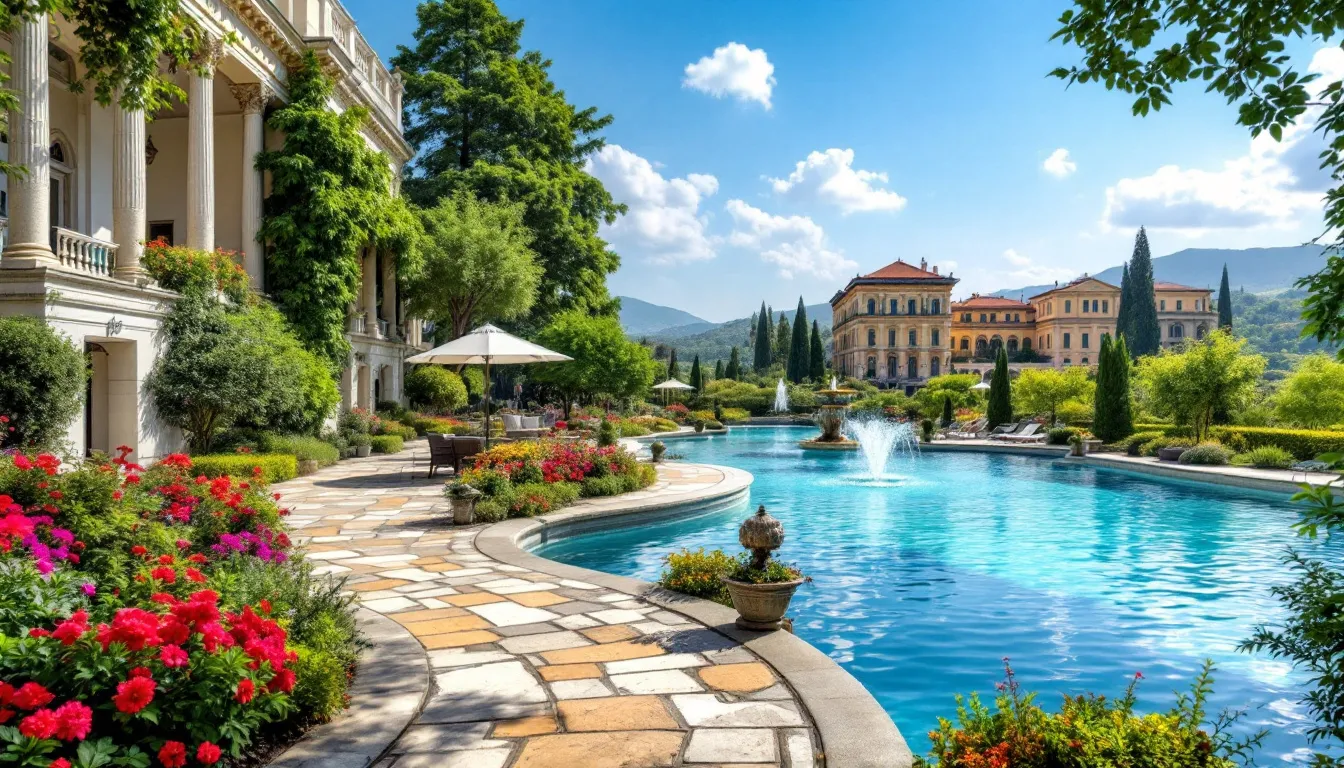
Tivoli Terme is the perfect place to unwind and rejuvenate, thanks to its thermal waters with therapeutic properties. The spa offers a variety of treatments, including massages, body wraps, and skin therapies, all designed to promote relaxation and wellness. The serene environment of Tivoli Terme provides a tranquil escape from the hustle and bustle of everyday life.
In addition to traditional spa treatments, Tivoli Terme also offers aromatherapy sessions that aim to enhance mental and physical relaxation. Whether you’re looking to soothe sore muscles, rejuvenate your skin, or simply enjoy a peaceful retreat, Tivoli Terme is the ideal destination for a relaxing getaway.
Practical Tips for Visiting Tivoli
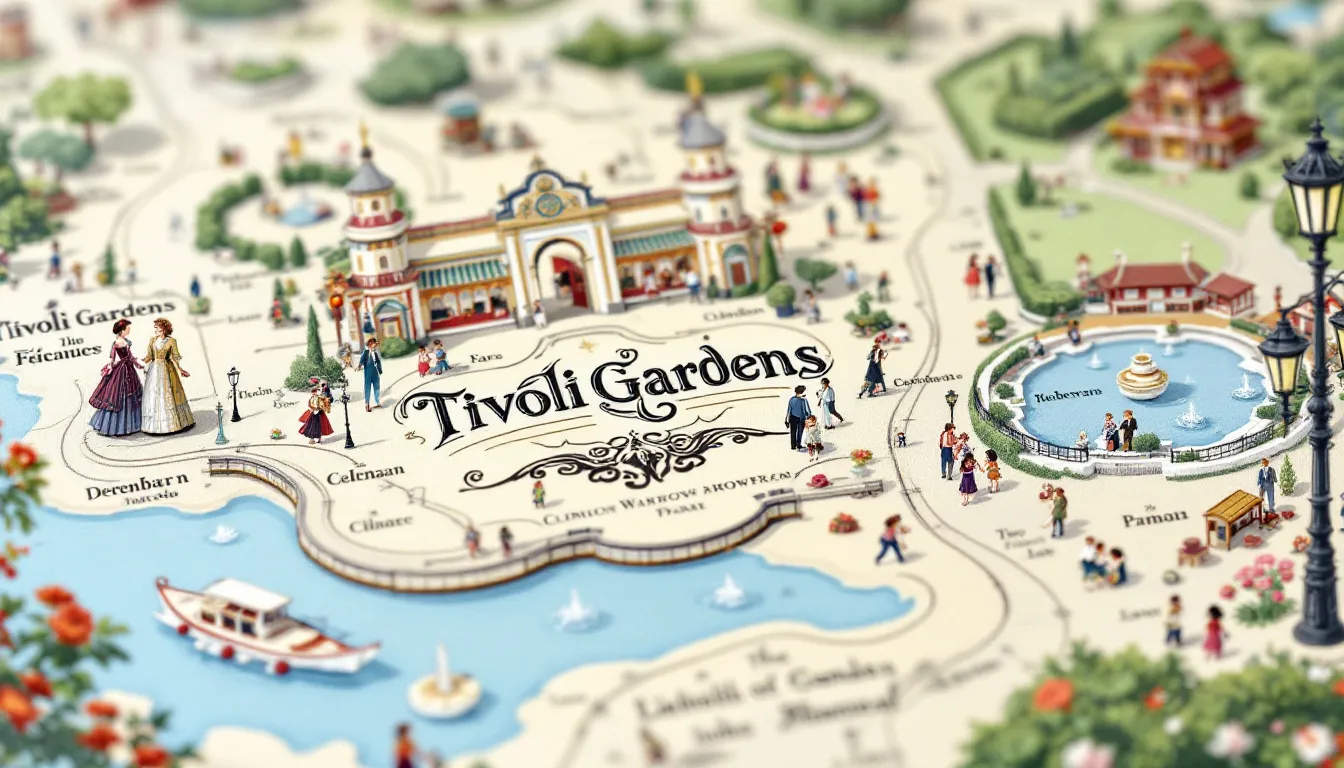
When planning your visit to Tivoli, a few practical tips can help ensure a smooth and enjoyable experience. Here are some suggestions:
- Bring a reusable water bottle to stay hydrated while exploring the town.
- Carry a portable charger to keep your devices powered for photography and navigation.
- Use a lightweight backpack for carrying essentials during your day trips around Tivoli.
Sunscreen and a hat are essential for protection from the sun, especially when visiting outdoor attractions like the villas. Additionally, Tivoli is known for its local delicacies, so be sure to explore the numerous recommended restaurants that emphasize using local and seasonal ingredients.
These tips will help you make the most of your visit to this beautiful hill town.
How to Get to Tivoli
Reaching Tivoli from Rome is both easy and convenient, making it an ideal destination for a day trip. Traveling by train is one of the most popular options,. Regular services depart from Rome and arrive in Tivoli in about an hour. This scenic train journey allows you to relax and enjoy the Italian countryside as you make your way to this historic town.
Alternatively, frequent buses operate from Rome to Tivoli, providing another convenient option for visitors. If you prefer to drive, Tivoli is just a 40-minute drive from Rome, offering a scenic route through the beautiful Italian landscape. Visiting Tivoli from Rome is hassle-free and enjoyable thanks to various transportation options.
Getting Around Tivoli
Once you arrive in Tivoli, exploring the town is a breeze. The historic center is compact and easily navigable on foot. This allows you to immerse yourself in the charming streets and alleys. Comfortable walking shoes are a must, as the cobblestone streets and steep hills can be quite uneven. Don’t forget to visit Tivoli!
The Cat Bus offers a reliable way to navigate between key sites in Tivoli for those who prefer not to walk. Public transportation, including local buses, connects major attractions, making it easy to get around without a car. Additionally, ridesharing services like Uber are available for quick and convenient transportation around the town.
Where to Stay
When deciding where to stay in Tivoli, you’ll find a range of options to suit different preferences and budgets. Torre Sant’Antonio, located in a quiet piazza in the town center, is a charming bed & breakfast offering two cozy bedrooms. This intimate setting provides a comfortable and convenient base for exploring the town.
For a more luxurious experience, consider staying at Residenze Gregoriane, a historic 16th-century inn near Villa Gregoriana. This plush hotel offers spa treatments and an atmospheric outdoor terrace. Furthermore making it an ideal choice for those seeking relaxation and indulgence during their stay.
With such diverse accommodation options, you’re sure to find the perfect place to rest and recharge during your visit to Tivoli.
What to Pack for Your Trip
Packing for your trip to Tivoli requires some thoughtful preparation to ensure a comfortable and enjoyable visit. Comfortable walking shoes are essential, as many of the town’s attractions involve walking and navigating cobblestone streets. Additionally, a reusable water bottle is recommended to stay hydrated while exploring the historic sites and gardens.
Other essentials to consider include a portable charger for your devices, sunscreen, and a hat for sun protection. Especially when visiting outdoor attractions like Villa d’Este and Hadrian’s Villa. A lightweight backpack can be useful for carrying your essentials, making it easy to navigate the town and enjoy your day trips.
With these items in tow, you’ll be well-prepared to make the most of your Tivoli adventure.
True Colors of Italy offers Private Bespoke Tours in Tivoli
For a truly personalized and immersive experience, consider booking a private bespoke tour with True Colors of Italy. Just a 40-minute drive from Rome, Tivoli stands out as a charming city celebrated for its well-maintained Roman and Renaissance landmarks, including two UNESCO World Heritage Sites. These tours provide an in-depth exploration of Tivoli’s treasures, tailored to your interests and preferences.
One of the highlights of the tour is a visit to Residenze Gregoriane, a historic 16th-century inn adorned with sculptures and frescoes, offering a soothing retreat or rejuvenating spa experience.
The tour also includes an organized tour of Villa d’Este. Here you’ll learn about the intriguing history of Cardinal d’Este while admiring the villa’s expansive frescoes, ornate fountains, and elegant statues.
Whether it’s a day trip from Rome or a longer stay, True Colors of Italy ensures an unforgettable journey through Tivoli’s most remarkable sites.
Summary: What to do in Tivoli Italy
Tivoli is a destination that seamlessly blends history, culture, and natural beauty, offering a wealth of experiences for every traveler. From the grandeur of Villa Adriana and the Renaissance splendor of Villa d’Este to the serene landscapes of Villa Gregoriana, Tivoli’s historic villas are a testament to the town’s rich heritage. Exploring Roman ruins, medieval architecture, and charming churches adds layers of depth to your visit. Additionally, the local cuisine ensures a delightful culinary journey.
Whether you’re strolling through the historic center, relaxing at Tivoli Terme, or savoring a meal with a view at Ristorante Sibilla, Tivoli promises a memorable adventure. With practical tips and personalized tours available, planning your trip to Tivoli is easier than ever. Embrace the true colors of Italy and let Tivoli’s timeless charm captivate your heart.
Frequently Asked Questions: What to do in Tivoli Italy
How far is Tivoli from Rome?
Tivoli is about a 40-minute drive from Rome. It’s a great spot for a day trip!
What are the notable landmarks in Tivoli?
Tivoli is home to stunning landmarks like the Villa d’Este and Hadrian’s Villa, both UNESCO World Heritage Sites that showcase its rich Roman and Renaissance history. You won’t want to miss exploring these beautiful sites!
What is Villa d’Este known for?
Villa d’Este is famous for its stunning frescoes, intricate fountains, and beautiful statues. This makes it a true gem of the Renaissance.
Where can one enjoy dinner in Tivoli?
You can enjoy dinner at Ristorante Sibilla, which offers stunning views of the Aniene River and the Temple of Sibyl. It’s a perfect spot for a memorable meal!
What additional attractions can be explored in Tivoli?
You should definitely check out Hadrian’s Villa and Parco Gregoriana while you’re in Tivoli. These spots offer a rich blend of history and beautiful landscapes!



